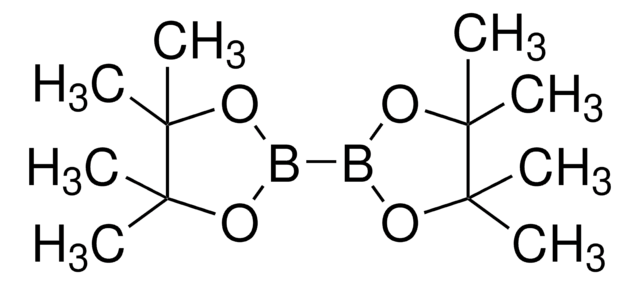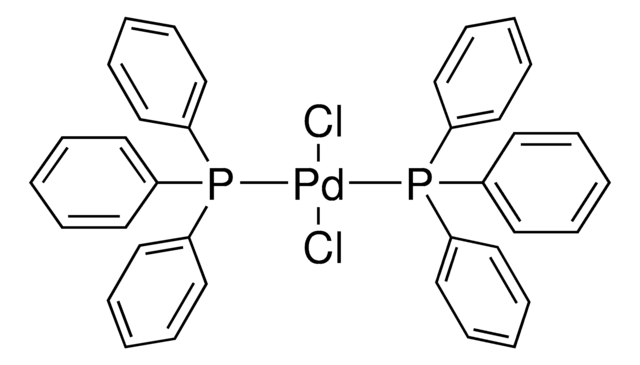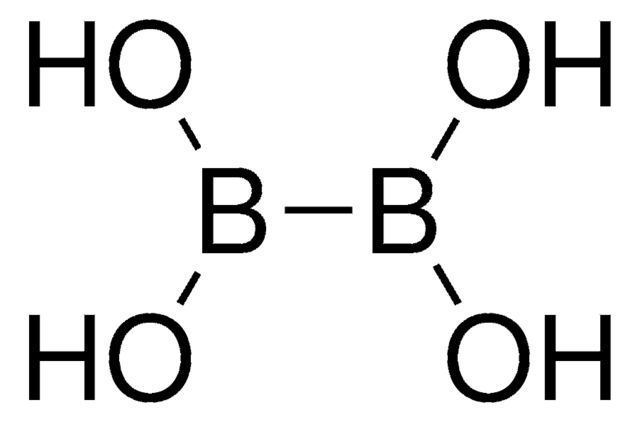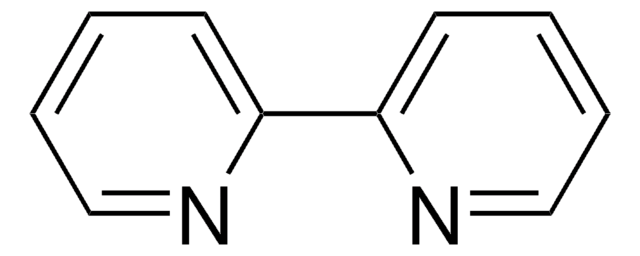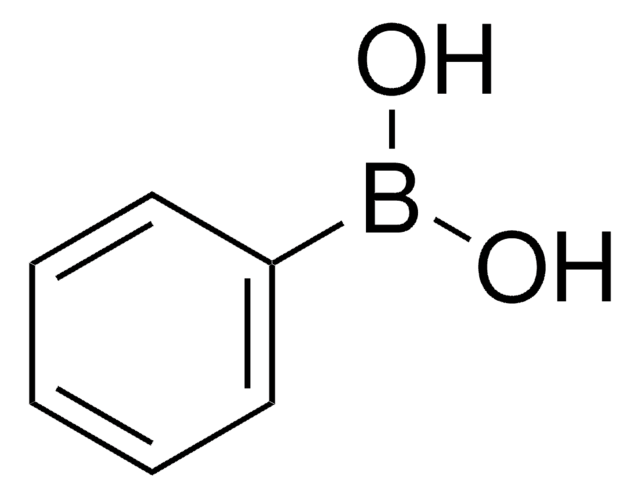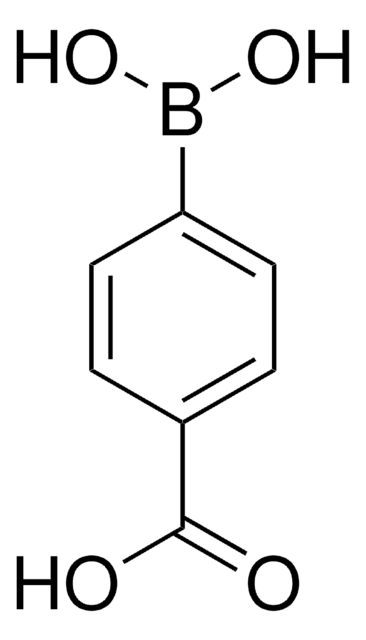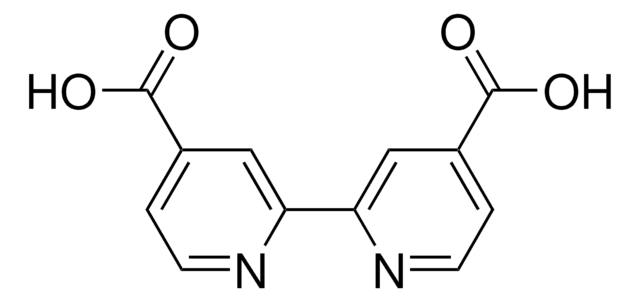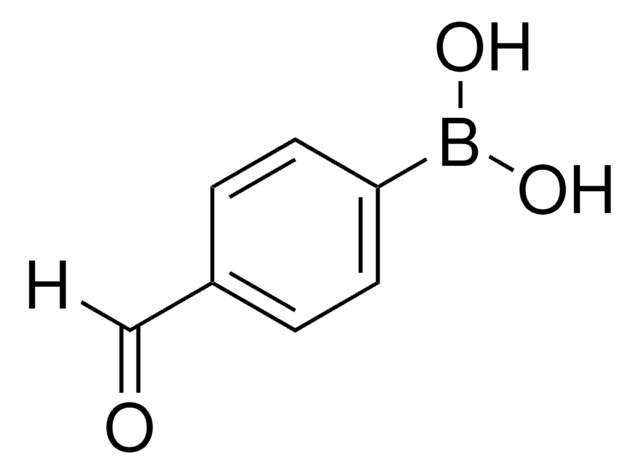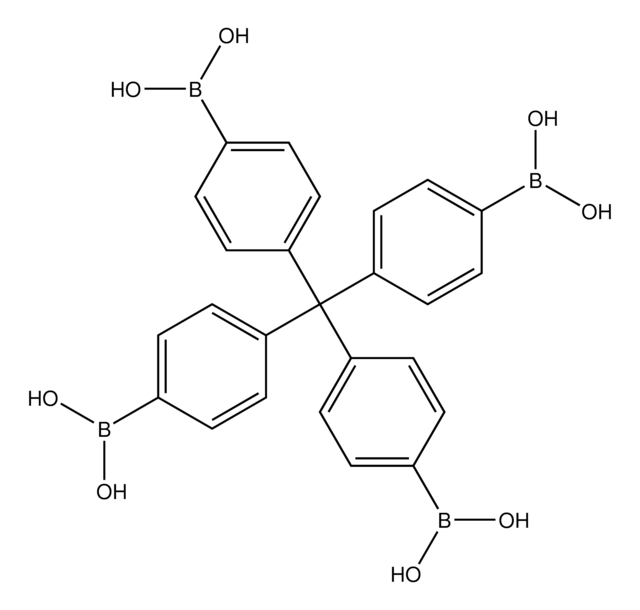417130
Benzene-1,4-diboronic acid
≥95.0%
Synonym(s):
p-Phenylenediboronic acid, 1,4-Phenylenebisboronic acid, 1,4-Phenylenediboronic acid, p-Benzenediboronic acid, Benzene-1,4-diboronic acid, NSC 25410
About This Item
Recommended Products
Quality Level
assay
≥95.0%
form
powder
mp
>350 °C (lit.)
SMILES string
OB(O)c1ccc(cc1)B(O)O
InChI
1S/C6H8B2O4/c9-7(10)5-1-2-6(4-3-5)8(11)12/h1-4,9-12H
InChI key
BODYVHJTUHHINQ-UHFFFAOYSA-N
Looking for similar products? Visit Product Comparison Guide
Related Categories
Application
- Externally initiated Kumada catalyst-transfer polycondensation
- Suzuki-Miyaura cross-coupling reactions
- Energy transfer processes in optoelectronic devices
- Palladium-catalyzed sequential alkenylation and conjugate addition reactions
- Scholl cyclizations
Reagent used in Preparation of
- Crosslinkers and cross-linked core-shell nanoparticles by RAFT polymerization and palladium-catalyzed Suzuki coupling reaction
- Fluorescence and solution-processable coordination polymers
- Cyclotricatechylene based porous crystalline material for gas storage
- Indolizine derivatives as OLEDs
- Helically p-stacked thiophene-based copolymers with circularly polarized fluorescence
- Novel organic semiconductors and applications in organic thin-film transistors
- Highly twisted polycyclic aromatic hydrocarbons with unexptected reactivity
Other Notes
signalword
Warning
hcodes
Hazard Classifications
Acute Tox. 4 Oral
Storage Class
11 - Combustible Solids
wgk_germany
WGK 3
flash_point_f
Not applicable
flash_point_c
Not applicable
ppe
dust mask type N95 (US), Eyeshields, Gloves
Choose from one of the most recent versions:
Already Own This Product?
Find documentation for the products that you have recently purchased in the Document Library.
Customers Also Viewed
Articles
Professor Aran (Claremont University, USA) thoroughly discusses the engineering of graphene based materials through careful functionalization of graphene oxide, a solution processable form of graphene.
Our team of scientists has experience in all areas of research including Life Science, Material Science, Chemical Synthesis, Chromatography, Analytical and many others.
Contact Technical Service